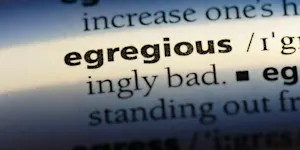What Makes This Word Tick
“Harlequin” has a certain colorful pizzazz, don’t you think? It rolls off the tongue with a sense of playfulness that often conjures images of jesters and bright, checkered costumes. This word is a delightful example of how language can paint a vivid picture in a single breath. It’s all about flair.
If Harlequin Were a Person…
Oh, Harlequin would be the life of the party, always ready with a joke or a trick up their sleeve. Think of someone with a talent for mimicry and a penchant for mischievous antics. But beneath that flamboyant exterior, you'd find a thoughtful soul, keenly aware of life's little ironies.
How This Word Has Changed Over Time
Originally emerging in the Italian theater tradition of commedia dell'arte, "harlequin" was a stock character known for cunning and wit. Over time, it has expanded beyond its theatrical roots to describe anything from a jester-like character to a bold pattern. Quite the evolution for a once humble stage performer!
Old Sayings and Proverbs That Use Harlequin
While this word doesn't pop up in traditional proverbs, the idea of the harlequin—crafty and unpredictable—lends itself to sayings about life's twists and turns. It embodies the spirit of "life is a masquerade."
Surprising Facts About Harlequin
Did you know that the harlequin character traditionally wore a black mask and multicolored clothes in a diamond pattern? Fascinatingly, these costumes sometimes had patches said to symbolize well-being and prosperity.
Out and About With This Word
In everyday use, “harlequin” often describes vibrant colors or patterns, as in “a harlequin design.” You might spot it when someone gushes about the vivid hues of a bustling market or a particularly bold outfit.
Pop Culture Moments Where Harlequin Was Used
Think of Harley Quinn, the iconic character in comic books and movies, who draws her inspiration from the traditional harlequin figure. Her playful yet chaotic nature is a modern embodiment of the harlequin's timeless charm.
The Word in Literature
“Harlequin” finds its place in romantic and historical novels, where characters, much like the harlequin, lead their lives with a touch of whimsy and deception. It’s a favorite in stories that blur the line between romance and adventure.
Moments in History with Harlequin
During the Renaissance, commedia dell'arte performances with harlequin characters swept across Europe, bringing delight and innovation to theatrical traditions. The harlequin became an emblem of cultural exchange and artistic experimentation.
This Word Around the World
Globally, the harlequin persona appears in various cultural contexts, from France's pantomimes to England’s harlequinade Christmas productions. Each culture adds its unique twist, be it through acting styles or costume design.
Where Does It Come From?
The word "harlequin" likely traces back to the Old French "Hellequin," a mythical figure leading a ghostly procession. You can see how the sense of mystery and fantasy has lingered in its usage today.
How People Misuse This Word
Sometimes people misuse "harlequin" to refer simply to clowns, overlooking the distinct wit and theatrical roots of the term. It's more about craftiness and cleverness than outright comedy.
Words It’s Often Confused With
Clown: While sharing the comedic aspect, a clown often lacks the harlequin's depth and wit.
Jester: Similar in their role of entertaining, jesters are historically court figures, whereas harlequins come from the world of theater.
Pierrot: Another commedia dell'arte character, Pierrot is more of the melancholic dreamer compared to the lively harlequin.
Additional Synonyms and Antonyms
Synonyms include "jester," "merry-andrew," and "buffoon," though each carries its nuance. An antonym might be "stoic," reflecting a stark contrast to the lively and colorful harlequin.
Want to Try It Out in a Sentence?
"She wore a coat with a harlequin pattern that brightened even the gloomiest of days." Here, “harlequin” captures the spirit of joy and vividness that the word brings to life.
















